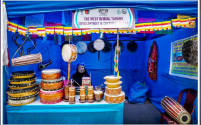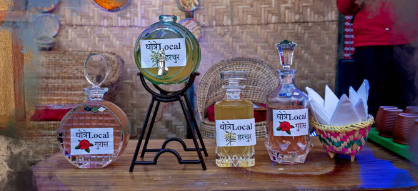Winter Season & Festivals
Darjeeling during winter becomes a melting pot of cultural richness and festive fervor, with events like the Orchid Festival, Orange Festival, Ethnic Food Festival, and a photographic exhibition celebrating the region's heritage.
Weather
In winter, temperatures typically range between 2°C to 10°C (36°F to 50°F), often creating a chilly, misty atmosphere that adds to Darjeeling’s mystical charm.
What to Take
Pack layers of warm clothing — heavy jackets, sweaters, scarves, gloves, thermal wear — and sturdy shoes to stay comfortable when walking on icy pathways.
Food / Cuisine
Enjoy piping hot local delicacies like Thukpa (noodle soup), momos (dumplings), and other traditional dishes to warm up in the cold weather.
Drinks
Don’t miss authentic Darjeeling tea — plus Tibetan butter tea, local brews, and refreshing fruit juices available in cafes and restaurants.
Internet & Connectivity
Internet access is available in hotels, cafés, and some public areas; while not as robust as in cities, there is adequate connectivity for basic browsing and communication.
Arrival in Darjeeling
Travelers typically reach Darjeeling via road or train. The nearest airport is Bagdogra (around 90 km away), followed by a taxi or private car ride. Alternatively, the vintage Toy Train from New Jalpaiguri offers a scenic route.
Languages
The main languages spoken are Nepali, Bengali and English. Other languages and dialects such as Tibetan, Hindi or tribal languages may also be spoken by certain communities.
Shopping
Darjeeling offers unique shopping options: tea of many varieties, handicrafts, Tibetan artifacts, traditional clothing like ‘chuba’, and local art. Popular shopping zones include Mall Road and Nehru Road.
Trading Hours
Most shops open around 9 AM and close by 7 PM — though timings may vary. Local markets often open early and bargaining is common.
Tipping
Tipping isn’t strictly enforced but is appreciated in restaurants for good service.
Etiquette
Visitors should greet locals politely. When entering monasteries or religious sites, remove shoes and dress modestly as a mark of respect.



